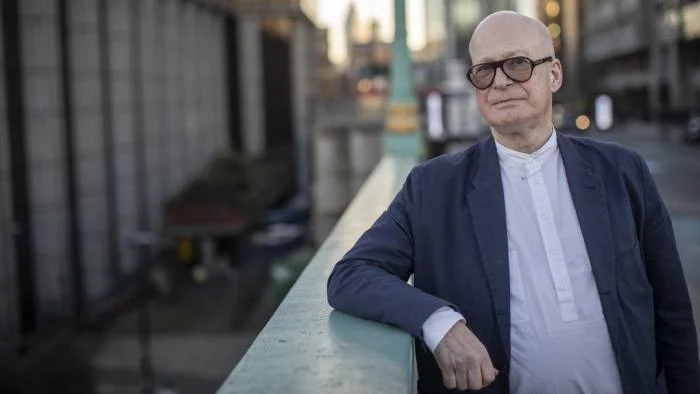Veteran adman Roger Mavity says the idea that great creative thoughts come from teamwork, brainstorming and the ever-present away day is one of the 'great myths' of creativity © Charlie Bibby/FT
On a wintry afternoon in February, a veteran British adman named Roger Mavity walked into a drab meeting room at the Financial Times to tell a bunch of journalists how to do their jobs better.
He and Stephen Bayley, the design guru, were about to publish How to Steal Fire, yet another book on one of the most eagerly sought qualities in the business world: creativity.
Companies buffeted by a storm of digital disruption and competitive pressures have embraced the need for creative thinking with gusto in recent years, which marks a turnround.
Chief executives have talked for decades about the importance of innovation, which academics define as the implementation of new ideas. But far less attention has been devoted to figuring out how to foster creativity itself.
That began to change after the dotcom crash of 2000 and the subsequent financial crisis. By 2010, a global survey of more than 1,500 CEOs found creativity was deemed the single most important leadership trait for success. Later research has shown that CEOs think the struggle to hire creative workers is one of the biggest threats to their business.
As a result, books like Mr Mavity’s arrive at the FT with great frequency. Like so many others, it promises to show readers how to “think boldly” and “spark imaginative thought”. Since newspapers have been disrupted as much as any business, we wondered what would happen if we invited him in to tell a group of journalists how we — and FT readers — might work more creatively. He cheerfully agreed, yet as soon as he began setting out his ideas, an obvious problem emerged: almost everything he was suggesting is almost impossible in the modern office, starting with its design.
“The first thing that helps creativity is solitude,” Mr Mavity said. “Creativity is essentially an individual rather than a collective activity.”
Sir Isaac Newton was a case in point, he told us. The great thoughts that helped him go on to formulate the theory of gravity came after the Great Plague closed his university (Cambridge) and he spent nearly two years shut away in his home in Lincolnshire.


